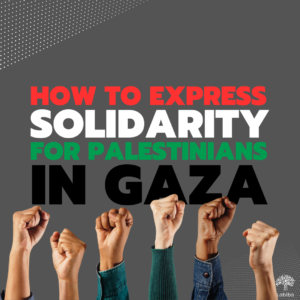International humanitarian law (IHL), commonly known as “the law of war” or “the law of armed conflict” strives to minimize the impact of armed conflict on civilians by regulating the means and methods of warfare and protecting individuals who are not directly participating in hostilities. IHL is a part of public international law, encompassing general legal principles, customary international law, and treaties.
As charges grow, it’s important to understand the legal definitions of terms like “war crimes” and what they imply. War crimes are serious violations of the laws of war, carried out purposefully or casually by those with criminal intent.
General Principles of the Law of War
Although the laws of war, or IHL, have existed in one form or another for thousands of years, their current form has been codified in the 1949 Geneva Conventions alongside other treaties and customary international law. It is important to keep in mind that the law is non-reciprocal, which means that it applies regardless of what the other side has done. It is never acceptable to justify a violation—such as targeting civilians intentionally or enforcing collective punishment—by pointing to the actions of another party, power imbalances, committing genocide, or other injustices.
Only certain circumstances, most notably those involving an armed conflict or occupation, are covered under the rules of war. Other laws, including international human rights law, are always in effect and regulate every state’s duty to defend the rights of its citizens in areas over which it has jurisdiction or some degree of control. Apart from the law governing the decision to use force, international humanitarian law governs the conduct of issues. All parties are required to abide by IHL, regardless of whether using force is justified. Four precepts summarize the principles of international humanitarian law: treat people under your authority with humanity, avoid attacking non-combatants, attack only combatants when permitted by law, and protect victims.
Occupation and International Humanitarian Law
This list of laws also governs occupation, which happens when a state has effective control over a territory over which it lacks a sovereign title without agreement. One example of this is Israel’s occupation of Palestinian territory. All parties involved in a war are required by international humanitarian law always to maintain the distinction between combatants and civilians. Parties have the right to target combatants and military objectives; civilians and civilian property must never be the focus of an attack. However, Israel has killed over 25,000 civilians so far, the national legislation has disappeared, and the world is silent.
Under the laws of war, the involved parties are obligated to offer an ‘effective warning’ unless circumstances prevent it. This obligation arises in case of an attack that might have an impact on the civilian population.
A warning won’t be effective if people are unable to flee to a more secure area. Yet, the parties must protect civilians even after giving a warning. If a warning is ignored, protection for civilians stays intact. Attackers must take all reasonable precautions to protect them, and they must remain untagged.
Israel violates the rules of war when it launches indiscriminate rocket attacks and airstrikes targeting civilians. These acts also represent war crimes when they are carried out to kill and make massive destructions.
Crimes Against Humanity: the role of Israel
There have been many crimes against humanity committed in Palestine in the past few months, and there are significant concerns that Israeli forces are targeting civilians illegally and indiscriminately. In highly populated neighborhoods, Israeli forces used white phosphorus, a chemical that ignites when it meets oxygen, resulting in horrific and severe burns. Burns to more than 10% of the human body can be deadly, and white phosphorus can burn all the way down to the bone.
Israel has also cut fuel, electricity, water, and food for the citizens of Gaza as a kind of collective punishment. Willfully blocking humanitarian aid from reaching needy civilians is also a war crime. Another concern is the fact that nearly all of Gaza’s civilian population may be ordered to be displaced by Israel; this is only allowed in cases. Where it is necessary for the safety of the civilian population for critical military purposes. The civilian population needs to be able to return as soon as possible; permanent displacement is a crime.
International Responsibility
The Israeli occupation forces have also committed and are still committing additional international crimes, such as West Bank settlements. It is a war crime if the occupying force moves any of its civilian population—directly or indirectly—into the occupied territory. Human Rights Watch and other human rights organizations have additionally found that Israeli authorities are mistreating millions of Palestinians and that apartheid is a crime against humanity. Among these ongoing crimes is the systematic persecution of the Gaza people. Only certain circumstances, most notably those involving an armed conflict or occupation, are covered under the rules of war.
Other laws, including international human rights law, regulate every state’s duty to defend the rights of its citizens in areas over which it has jurisdiction or some degree of control. The parties to the war and all countries must allow and facilitate impartial aid that is aimed exclusively at the people in need if populations are not given the necessities, such as food, water, healthcare, and other necessities for survival.
Several international laws, such as UN resolutions and the Fourth Geneva Convention’s Laws of War and Occupation, have been violated by the state of Israel. Taking Palestinian land, displacing native populations from their homes, and refusing Palestinian landowners or tenants employment or residency are just a few of the violations. The separation barrier was declared illegal by the International Court of Justice, and Israel has committed numerous violations of the Palestinian people’s human rights. Settlement construction goes against the Fourth Geneva Convention and pertinent Security Council decisions, and it is changing the demographic composition of the Occupied Palestinian Territory.




